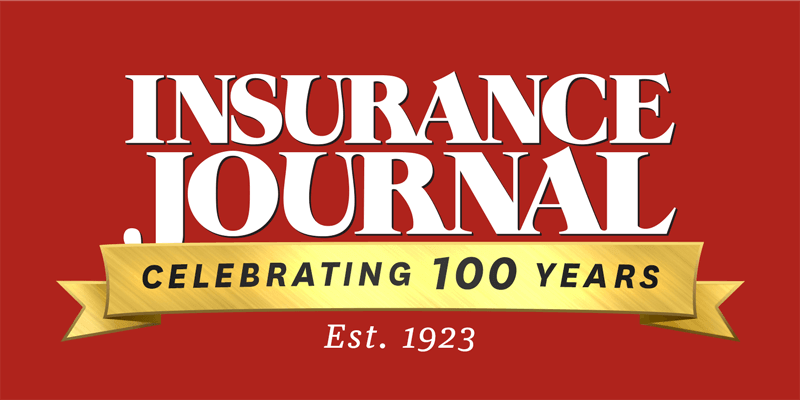As more small business owners become comfortable buying everything including insurance online, exclusive agent carriers will gain an advantage over independent agency carriers in the highly-fragmented and increasingly competitive small commercial lines insurance market, according to a new report.
Overall, the small commercial insurance market is a bright spot, one of the few P/C markets in the U.S. that has been growing in recent years. But a new report from McKinsey & Co. says the competition in this market will intensify as more large carriers enter the field and small business customers exhibit their openness to buying via direct and digital channels.
McKinsey says the market is attracting attention from carriers with primary business lines that have become saturated and commoditized, as well as from digital-based sellers. While the report says focusing on the profitable small commercial segment makes business sense, it also maintains that the shifting behavior of small business owners towards online purchasing presents new challenges for carriers, particularly those that use independent agents.
According to the report, Small Commercial Insurance: A Bright Spot in the U.S. Property-Casualty Market, agency carriers will need to adjust to compete in this space.
“The ‘consumerization’ of small commercial insurance is likely to shift the balance of power in the sector. Carriers with customer-facing capabilities—particularly exclusive agent carriers with strong personal lines businesses and some small commercial presence—will have an advantage over those that distribute through independent agents. Independent agency carriers have deep industry experience and operational strengths, but will need to move quickly to develop marketing and customer-facing capabilities,” the report says.
McKinsey consultants also believe that digital sellers “unencumbered by legacy issues that can launch nimbler direct models” will be vying for their share of the small commercial lines market, too.
According to McKinsey, a segment of small commercial insurance buyers will always value independent agents, but an increasing percentage are open to the direct route and may only be using agents to close a deal because direct binding isn’t readily available. Sixty percent of the customers surveyed said they would consider binding direct.
“If carriers develop strong direct quote-and-bind capabilities, there will be no shortage of customers willing to use them,” the consultants conclude.
The report is based on a survey of 1,500 small businesses in the U.S. across a variety of industries, ranging in size from one to 100 full-time employees, as well as interviews with dozens of customers and distributors.
The Market
For this report, the small commercial market in the U.S. is defined as businesses with up to 100 employees and $100,000 in annual premiums. This segment represents just over one-third of the commercial lines market with $103 billion in direct written premiums. The market is highly fragmented with the largest carrier accounting for only 6 percent of total premiums.
However, “the largest carriers are moving quickly to secure their positions,” according to McKinsey, which found that over the past six years, the market share of carriers with more than $2.5 billion in direct written premiums has increased by 12 percentage points.
According to McKinsey’s survey, almost 40 percent of sole proprietorships in the U.S. do not carry small commercial coverage. “Some may be covered under home-based business owner policies or endorsements on their personal lines policies, but this finding raises the possibility of unexpected room for growth in the smaller business market,” the report says.
However, McKinsey believes that “changing customer preferences and behaviors are upending traditional business models” and carriers will need to improve in a number of areas in order to capitalize on the attractive opportunities in small commercial insurance.
Report’s Findings
Among the claims from McKinsey’s research:
· Customer demand for alternatives to agents exceeds supply. A segment of small commercial insurance buyers will always value the advice and personal touch that agents provide, but an increasing percentage are open to the direct route. Already, 70 percent of small commercial customers start their shopping journey through a non-agent channel (e.g., online). Most shift over to the agent channel, with 82 percent binding through agents. However, for a significant percentage of shoppers, using an agent to close the deal may be less a matter of choice and more a question of the availability of direct binding. Sixty percent of the customers McKinsey surveyed said they would consider interacting directly with a commercial insurer, and more than half of those would consider binding direct. If carriers develop strong direct quote-and-bind capabilities, there will be no shortage of customers willing to use them.
· Customers see products as over-complicated and feel unprotected against emerging risks. Many small commercial customers expressed a desire to simplify the process for getting the right combination of products and coverage. Carriers could offer simple packages tailored to the largest industries, and the major sub-classifications within them, to meet this need. Among emerging risks, cyber risk is most troubling to small business owners, with nearly one-third naming it as a concern and over one-third reporting they are not adequately covered.
· The number of potential switchers far exceeds the 6 percent who actually switch. Many more small commercial customers are up for grabs during renewal cycles than the actual level of switching—about 6 percent—would indicate. The largest untapped segment are customers who do not shop, but maintain their loyalty out of inertia rather than a strong connection to the brand. These “passively loyal” policyholders represent nearly one-quarter of all small commercial insurance customers. At the beginning of the direct era in personal lines insurance, GEICO and Progressive grew in large part by attracting passive loyalists from other carriers.
· Industry sector and business size are ineffective criteria for market segmentation. The traditional approach to segmentation in small commercial insurance will no longer serve carriers in an increasingly competitive market. Segmentation based on customer needs and behaviors provides a more accurate view into what influences insurance buyers. For example, price-sensitivity is not exclusive to smaller businesses with basic coverage needs; there is a segment of insurance buyers at larger small businesses across a range of industries for whom price is paramount. Propensity to buy direct is another behavioral factor that can crop up in unexpected segments. For example, even at larger, complex small businesses, a segment of insurance buyers that McKinsey calls “industry expertise shoppers” prefers to handle insurance shopping through direct channels.
Other Reports
The McKinsey report’s findings aren’t new. According to a 2013 study by consultant Deloitte, more than half of small businesses (52 percent) said they were ready and willing to buy their insurance direct from a carrier over the Internet without an agent or broker. However, as the McKinsey report found, they were not buying it online in great numbers in the U.S. for a number of reasons including the lack of web options but they were interested.
Also, according to a recent J.D. Power survey of U.S. small commercial insurance customers, insurers writing predominantly personal lines get higher satisfaction ratings from small business customers than insurers focused more on commercial lines.
Independent agency carriers are not unaware of the challenges ahead in small commercial lines. A number have joined the TrustedChoice.com online commercial insurance platform backed by the Independent Insurance Agents and Brokers of America (Big “I”) to sell small business insurance.
Insurers are also investing in digital platforms including CoverHound, 24 percent of which is now owned by ACE Ltd. (now the new Chubb). Insureon, an online agency for small business insurance, raised more than $30 million last October. Seattle-based AssureStart, backed by the American Family Mutual Insurance Co., which sells to business with fewer than 30 employees, is backed by the American Family Mutual Insurance Co. Insurer Hiscox has been expanding its online platform for small businesses for a number of years.
Last December, Berkshire Hathaway Inc., which owns GEICO, created Berkshire Hathaway Direct Insurance Co. to sell insurance directly to businesses over the Internet. The new insurer planned to initially focus on workers’ compensation and business owners’ package policies.
Source: McKinsey & Co.
Related:
- Small Businesses to Commercial Insurers: ‘You’ve Lost That Loving Feeling’
- Small Commercial Lines: The Good, The Bad, The Ugly
- The Hartford Joins Agents’ Trusted Choice Website for Small Commercial Lines
- How Carriers, Agents Can Adapt As Small Commercial Buyers Move Online
- Nationwide Launches New Online Quoting System for Small Business Agents
- Agents Say Insurers Out of Touch with Needs of Small Businesses
Topics Carriers USA Agencies Commercial Lines Business Insurance
Was this article valuable?
Here are more articles you may enjoy.



 Could Georgia Be Next With Major Tort Reform? Kemp Calls for Limits
Could Georgia Be Next With Major Tort Reform? Kemp Calls for Limits  Finance Firms’ Return-to-Office Crackdown Could Backfire: Deloitte
Finance Firms’ Return-to-Office Crackdown Could Backfire: Deloitte  Severe Convective Storms Top Insured Natural Disaster Losses in H1: Swiss Re
Severe Convective Storms Top Insured Natural Disaster Losses in H1: Swiss Re  Political Violence in Polarized US at Its Worst Since 1970s
Political Violence in Polarized US at Its Worst Since 1970s 

